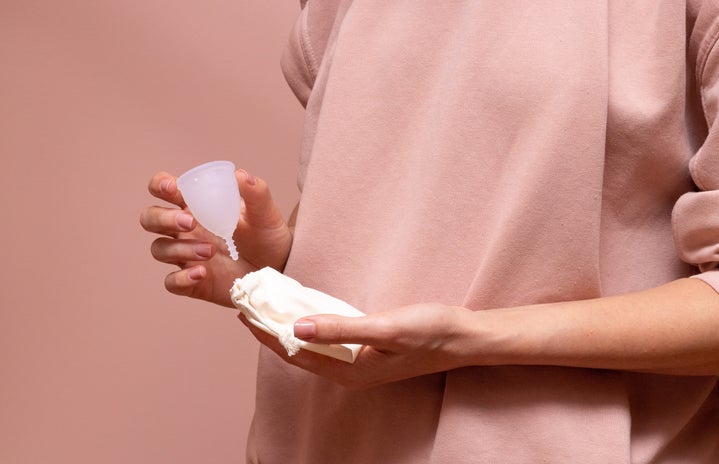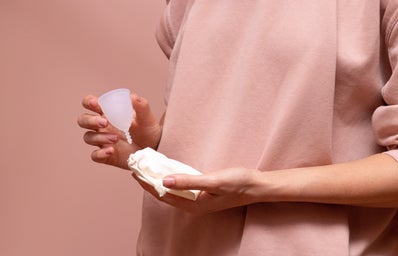Hello beautiful people! Today I am here to talk about a topic that still seems to be highly stigmatized in society, but by all means should not be: the menstrual cycle. As women, our hormones are actively working to keep our bodies balanced with the end goal of reproduction. Because of this, we go through a cycle of fluctuating hormones that bring about all kinds of changes.
Throughout the month we experience different levels of energy, various moods and even physical body changes. It can be frustrating when one day we feel on top of the world, and the next day we barely feel like getting out of bed.
But what if I told you there was a way to optimize your lifestyle to feel your best no matter what time of the month it is? Through a process known as cycle syncing, we can take back our power! I’m here to share how we can reduce period symptoms, increase our energy and mood and nurture our bodies. By being aware of where we are in our cycle, we can tailor our daily and weekly choices to best support our hormones and feel more balanced.
Before we begin, it’s important to understand the different stages that take place during your menstrual cycle. To get a basic summary of it, click here. Having a better understanding for your cycle will allow you to easily track where you are in your cycle, and make it easier to reap the benefits of cycle syncing.
Furthermore, this article is just for informational purposes and will be going off of the average 28 day cycle. I am not a doctor or expert in any field (yet), just your typical college student. It’s intended to inspire women to listen to their bodies. Everyone is unique and most women have shorter or longer cycles. This is just a VERY basic outline that I’m sharing to help you create a lifestyle specific to you and your needs. I encourage everyone to continue their own research after reading this!
MENSTRUAL PHASE: First day of period – End of period (Day 1-7)
Body: estrogen and progesterone hormone levels are low
Mood: slow, restful, lower energy
Nutrition: warming foods—soup, spices, iron-rich, flax and pumpkin seeds, magnesium-rich, slow cooked, anti-inflammatory foods
Exercise: rest and low intensity—walking, yoga, stretching, pilates, low intensity strength
Your menstrual phase is best known as your period. This is a time of lower, slower energy. It’s best to focus on warming comfort foods such as soups and stews, and best to allow your body to rest with lower intensity exercises. Water intake is important throughout the month, but should be at its highest during this phase. Don’t feel down when you don’t feel up to your long list of things to do. Instead, focus your energy on intuition and reflection. Evaluate your past month and listen to your gut feelings.
FOLLICULAR PHASE: End of period – Ovulation (Day 8-14)
Body: estrogen and testosterone are rising, follicle stimulating hormone (FSH) is released to stimulate ovary follicles
Mood: increased energy and confidence
Nutrition: lean proteins, whole grains, fermented foods, fresh/ steamed veggies
Exercise: HIIT, heavy weights, spin, increased volume and intensity
Once your period is over, you move into your follicular phase (although some resources may combine these two phases into one). This is when your body prepares for reproduction, and your energy and confidence levels are on the rise. This period is typically where you will naturally feel your best and have a lot of creativity. Fuel yourself with energy building foods that contain lots of vitamins and nutrients. With increased energy this is the perfect time for planning new projects, going out and trying new things and getting a high intensity workout in!
OVULATORY PHASE: Ovulation (Day 15)
Body: estrogen and testosterone at their max, luteinizing hormone (LH) causes follicle to burst open and release an egg
Mood: generally the highest energy levels, outgoing, social
Nutrition: raw cruciferous veggies, fatty fish, light grains, lentils, fresh fruit, sunflower and sesame seeds
Exercise: HIIT, spin, heavy lifting—time for a personal best!
Ovulation is when your energy levels are at their very highest, but only lasts for 12-24 hours. This is when an egg is released from the fallopian tubes. Around this phase, focus on getting in your raw whole fruits and veggies, along with other nutrient dense foods. Drink more water and focus on fiber rich foods to help with any potential constipation and bloating that may follow. Around this time is when your communication and collaboration skills are at their highest. Use this time to have those big, important conversations, plan a fun night out with friends and don’t forget to smash out a sweaty session in the gym to release some of that extra energy.
LUTEAL PHASE: End of Ovulation – First day of Period (Day 16-28)
Body: progesterone immediately begins to rise and dominate after ovulation. Estrogen and testosterone decline slowly and FSH & LH levels sharply drop
Mood: normal energy and mood for the first 4-7 days, PMS symptoms for the end of this phase
Nutrition: B-vitamin rich, fiber rich, roasted veggies, cod, turkey, legumes, healthy fats, warm and nourishing comfort foods
Exercise: regular to lower intensity, high rep low weight training, walking, yoga, pilates
Finally, the last phase in your cycle is the luteal phase. This phase is the transition from higher to lower energy levels; like the end of a roller coaster when it starts to slow down but you haven’t quite made it to that final stop. For the first half you have a good amount of energy and your mood is pretty consistent. This when we are most task oriented, and have an easier time focusing and getting things done. Midway through we start to get those typical PMS symptoms. Our energy levels drop, our mood begins to fluctuate and our appetite increases. Listen to your body’s hunger cues, and indulge more than you usually would. Your body has cravings for a reason. It’s important to nurture yourself with ultra nourishing foods to assist in the preparation for menstruation.
Understanding the four different phases of your menstrual cycle will help you plan and prepare for your month ahead. For me, it’s nice to know why I’m feeling a certain way and allows me to be more mindful of what my body needs. Instead of feeling guilty for having a “lazy day,” I listen to my body and nurture it. Having a period doesn’t have to be this annoying thing that happens once a month, instead we can use it as a tool to practice self care and be the best version of ourselves.



